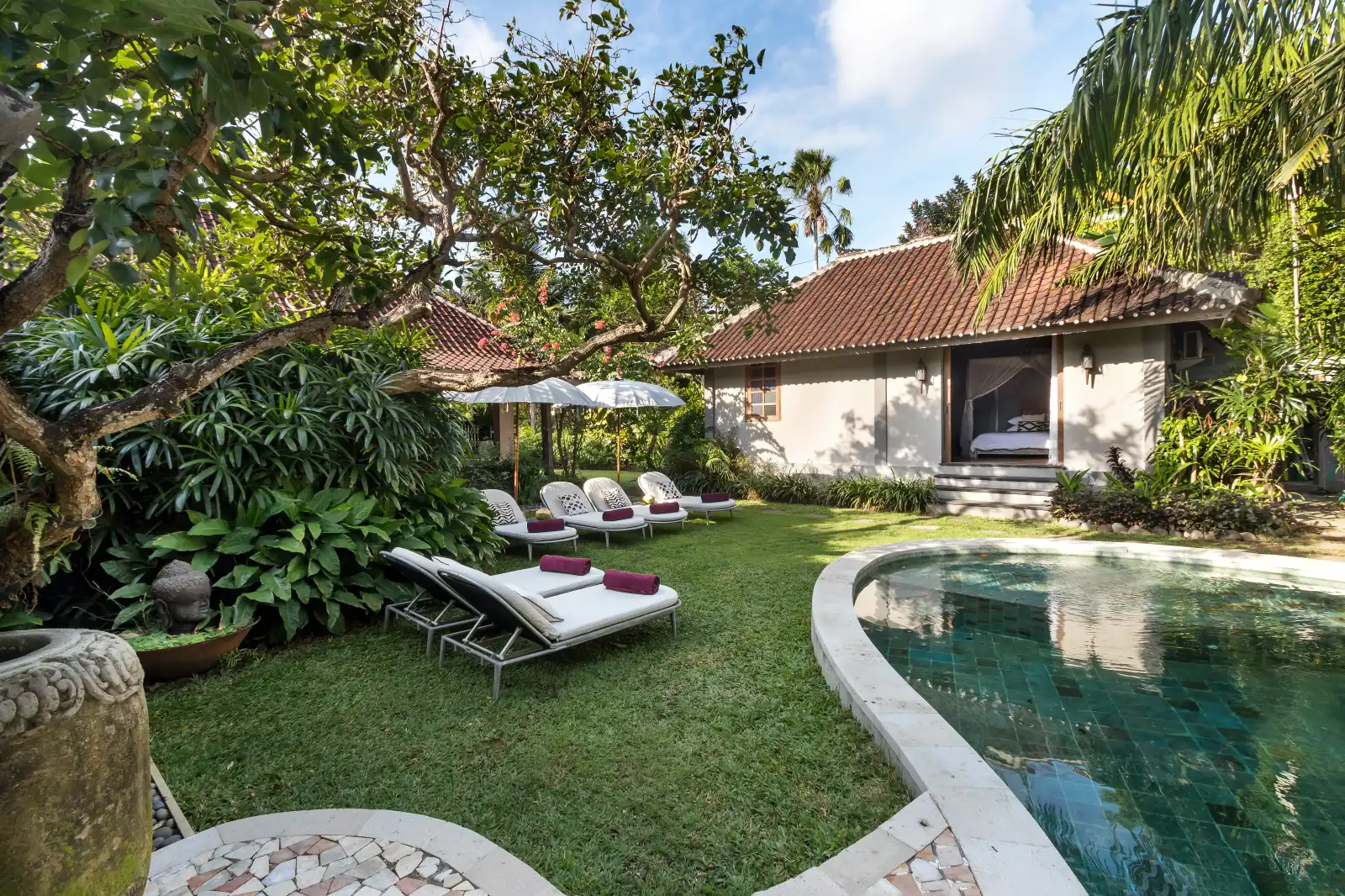Property Ownership Regulations in Bali: Find Out Here!
Oktarina
November 20, 2025
10 min read

Have you ever wondered how to own property in Bali, especially if you are a foreigner (WNA)? Bali, with its stunning natural beauty and rich culture, has become a top choice for many people looking to invest in property. However, before you decide to purchase property in Bali, it’s important to understand the property ownership regulations in Bali, as these rules differ for Indonesian nationals (WNI) and foreigners (WNA). Misunderstanding these regulations could pose risks to your investment.
In this article, we will thoroughly discuss the property ownership regulations in Bali, the different types of land rights available, and tips and tricks to help ensure that your property investment is smooth and profitable. Keep reading so you can invest with more confidence and fully understand your rights as a property owner.
TL;DR:
- Property ownership regulations in Bali differ for Indonesian citizens (WNI) and foreign nationals (WNA), with WNA unable to own land under freehold but able to use Right to Use or Right to Build (HGB) for property ownership.
- WNA can purchase property in Bali through a PMA (Foreign Investment Company), allowing them to acquire property for business purposes under HGB.
- Before investing, it’s crucial to conduct due diligence, verify property legality, and understand the property ownership regulations in Bali to ensure a safe and profitable investment.
Why Is It Important to Understand Property Ownership Regulations in Bali Before Starting an Investment?

Before starting a property investment in Bali, it’s crucial for you to understand the regulations to avoid legal problems in the future. Each type of property ownership regulations in Bali has different rules, especially between Indonesian nationals (WNI) and foreigners (WNA). Misunderstanding these regulations could lead to invalid property ownership or even involve you in lengthy legal disputes.
In addition, knowing the regulations will also help you choose the right type of property based on your needs. Whether you’re planning to buy a property for personal living, long-term investment, or commercial use, understanding the rules will help you make the right decision. With proper knowledge, you can proceed with greater security and be prepared for any challenges, ensuring your investment goes smoothly and profitably.
What Are the Property Ownership Regulations in Bali?
Generally, the property ownership regulations in Bali follow the laws in Indonesia. However, there are certain things you need to be aware of, especially regarding who is allowed to own property in Bali and how to legally acquire it.
These rules differentiate the property ownership rights for Indonesian nationals (WNI) and foreigners (WNA). WNI have broader rights to own land and buildings, while WNA have certain restrictions. Therefore, it is essential to understand these differences so you can choose the right type of ownership based on your citizenship status and investment goals. With a clear understanding, you can make a more informed decision and avoid potential legal issues in the future.
Read more: Luxury Property Investment in Bali: The Complete Guide for Investors
Types of Property Ownership in Bali

Bali offers various types of property ownership regulations in Bali, that you can choose from, depending on your needs and investment goals. Each type of ownership has different regulations, benefits, and rights attached to it. It’s important to understand each type so you can make the right decision. Here are some of the property ownership options you should know about:
1. Freehold (Hak Milik)
Freehold, or Hak Milik, is the most complete form of ownership that grants full rights over the land and building. The owner has the freedom to sell, inherit, or transfer the property as they see fit. This is the most desirable form of ownership as it gives full control over the property.
However, it’s important to note that Hak Milik can only be owned by Indonesian citizens (WNI). This means that if you’re a foreigner (WNA), you cannot buy property with Hak Milik in Bali. So, if you’re planning to buy property with Freehold rights, this option is only available for Indonesian citizens.
2. Right to Use (Hak Pakai)
Right to Use (Hak Pakai) allows foreigners to use land or property for personal purposes within a specific period, usually between 25 to 30 years. This right can be extended if certain requirements are met.
With Hak Pakai, foreigners can enjoy property in Bali without having full ownership of the land. This is the most common option for foreigners looking to invest in property in Bali, as it allows them to use the property for an extended period without the need to directly own the land.
3. Right to Build (HGB – Hak Guna Bangunan)
Hak Guna Bangunan (HGB), or Right to Build, allows foreigners to build on land that is owned by someone else. Typically, HGB lasts for 30 years and can be extended.
For foreigners, HGB is a great option if they want to develop property, such as for a business or certain projects, as it permits building and using the property for a specified purpose. However, the land used under HGB still remains owned by another party, usually an Indonesian citizen.
4. Leasehold (Sewa Jangka Panjang)
Leasehold is an option widely chosen by foreigners who want to invest in property in Bali. In this arrangement, foreigners lease land or buildings for a long period, typically between 25 to 30 years, with the possibility of extending the lease once it expires.
Although foreigners don’t own the land, Leasehold provides freedom to manage the property during the agreed lease period. This option is ideal for properties used for commercial purposes or rental villas, as it allows the owner to benefit from the property without owning the land.
Property Ownership Regulations for Foreigners (WNA) in Bali
Bali is an attractive place for foreigners to invest in property, but there are certain rules to understand because WNA cannot own Hak Milik land in Bali. However, there are legal ways for foreigners to own property in Bali, such as through Hak Pakai, HGB, or by establishing a PT PMA (Foreign Investment Company).
- Hak Pakai (Right to Use)
This right is the most common way for foreigners to own property in Bali. With Hak Pakai, foreigners can use land or property owned by an Indonesian citizen for 25 to 30 years, with the possibility of extension. This right is typically granted through a lease agreement between the landowner and the foreigner. - Hak Guna Bangunan (HGB – Right to Build)
This right allows foreigners to build and use buildings on land owned by an Indonesian citizen. HGB lasts 30 years and can be extended. This is a suitable option for foreigners who want to develop properties for commercial purposes like hotels or resorts. - PT PMA (Foreign Investment Company)
If a foreigner wants to buy property in the name of a company, they can establish a PT PMA. Through this company, foreigners can purchase property with HGB for business purposes. PT PMA is commonly used for commercial purposes, such as running a villa or resort. - Residence Permit
To buy property in Bali, foreigners must also have a valid residence permit, such as a KITAS (Limited Stay Permit) or KITAP (Permanent Stay Permit). Without a valid residence permit, foreigners cannot buy property in Bali.
Risks to Consider When Investing in Property in Bali

Like any other investment, investing in property in Bali comes with risks that need to be carefully considered. Some things to watch out for include:
- Land Disputes
Ensure that the property you are purchasing has a valid certificate and is free of any disputes. Checking the legal status of the property will help you avoid future legal problems. Land disputes can result in significant financial loss and disrupt your investment plans. - Changes in Government Policy
Regulations regarding property ownership in Bali can change, especially for foreigners. Government policies may affect property ownership rights, so it’s essential to stay updated on the latest regulations. Make sure you understand the current rules and potential changes that may occur in the future. - Licenses and Legalities
Before purchasing property, ensure that the property has complete licenses for construction and use. Properties without proper legal documentation can lead to legal problems down the road.
Performing thorough due diligence is essential to ensure that the property you intend to purchase is legally valid and complies with all applicable regulations. This will help you avoid problems in the future and ensure your investment is safe and profitable.
Safe and Profitable Investment Tips in Bali
Bali is an attractive property investment destination, but like any other investment, there are steps to take to ensure that your investment is safe and profitable. Here are some detailed tips you can follow:
- Choose a Licensed Legal Consultant or Notary
Make sure you work with an experienced and licensed agent or notary to ensure that the property transaction you make is legal and legitimate. We recommend using the property legal services from Bali Premium Trip, who have a professional team to help ensure your property transaction runs smoothly and according to the law. - Perform Due Diligence
Before purchasing property, make sure to verify the land certificate status, building permits, and all related documents. This step is crucial to avoid future legal issues. Ensure that the property you are purchasing is free of disputes and has clear legal status. - Choose the Right Location
Choose a location that is developing and in high demand by tourists or locals, such as Ubud, Seminyak, or Canggu. Investing in strategic and growing areas will provide greater returns in the future. The right location will also increase the property’s value and rental demand. - Use Trusted Consultants in Bali
It’s highly recommended to use a trusted consultant who specializes in property investment. We will help ensure the entire process runs smoothly and complies with local regulations. We suggest using investment services, which has the network and experience to support your property investment safely and profitably.
Read more: The Difference Between Property Ownership and Property Usage in Bali You Must Know!
Plan Your Property Investment in Bali with Bali Premium Villa!
Before you start your property investment in Bali, it’s crucial to understand the property ownership regulations in Bali. Bali has different regulations for WNI (Indonesian citizens) and WNA (foreign nationals), as well as specific rules regarding the types of ownership allowed. By understanding the regulations, you can avoid future legal issues and ensure that your investment is both legal and profitable.
To make sure your property investment runs smoothly, we recommend using the investment services from Bali Premium Villa. With our expertise and knowledge of the Bali property market, we can help you choose the right property for your investment goals. We will ensure all the legal documents, permits, and other legal aspects are processed correctly, guiding you in making secure and profitable investment decisions.
So what are you waiting for? Plan your property investment in Bali with Bali Premium Villa today! Contact us now – we’re ready to help you find the perfect property and support you in every step of your investment journey in Bali!

Related Article

How to Choose Villa Maintenance Service in Bali? Check Here!
Have you made sure that your villa in Bali is...
Have you made sure that your villa in Bali is getting the right maintenance? How to choose villa maintenance service...

The Importance of Preventive Maintenance for Luxury Villas in Bali
Do you know that proper maintenance is key to preserving...
Do you know that proper maintenance is key to preserving the quality of your luxury villa in Bali over the...

7 Interior Elements That Must Be Present in a Luxury Villa in Bali
Have you ever wondered what makes a luxury villa in...
Have you ever wondered what makes a luxury villa in Bali truly stand out in this competitive property market? Interior...
